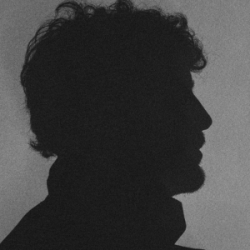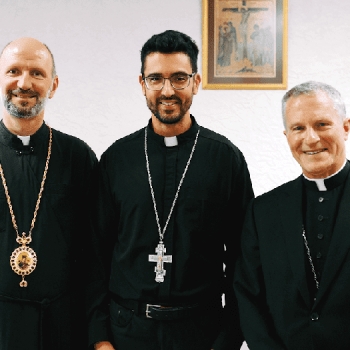This is bound to be one of those posts that simultaneously scares certain conservative dominant religious elements because it confirms their fears, while also potentially upsetting some people who may otherwise be open to or allied with some of my wider aims and affiliations. So, the reaction to this should be interesting to witness in the coming days.
Modern Paganism, however deep its roots in the past and in ancient civilizations might be, is a relatively new religion. However, it is old enough that there are some second (and even third) generation Pagans now, who have been raised within the religion for much, if not all, of their lives, and have continued on with it in their adulthood. While there were (often spurious) "grandmother stories" amongst some Pagans in recent decades, now there are fully credible and verifiable stories of mothers and fathers, and grandmothers and grandfathers, who are still living and are known figures who are passing down their Pagan and polytheist traditions to their children and grandchildren. This is certainly a good thing.
A difficulty arises, though, when a variety of factors that are not within the dominant paradigm of the heterosexual family and its reproductive capacities come into the question. If there are queer Pagans who have not been parents (whether that parentage occurred with previous marriages, surrogacy, or other means) or who have not adopted children, it becomes very difficult to pass one's Pagan traditions to anyone in the manner in which it is done in heterosexually reproductive families. It is far easier to learn and absorb the elements of a religion from one's parents than it is from teachers, books, or religious organizations; and, given that Pagans on the whole know more about their religious traditions than many parents would in more widespread religions, this is a very good thing indeed, but it is thus not an option for queer Pagans to pass down their traditions in this way.
And, needless to say, the children—adopted, genetic, or what-have-you—of queer parents may not be queer themselves; they are no more likely to be queer than children generally speaking are. The particular queer Pagan practices of queer Pagan parents, therefore, may not be appropriate for non-queer Pagan children anyway.
The other major difficulty in such a situation arises when the children of Pagan parents happen to be queer. While Paganism, on the whole, is fairly open to and accepting of queer and gender-variant people, and is far better than almost any other religion in the world in this regard, there are still elements in mainstream Paganism that can be exclusive of queer people's full inclusion. "All acts of love and pleasure are my rituals," says the Charge of the Goddess, and yet, we don't hear too much about any of a certain class of those acts of love and pleasure within many mainstream Pagan narratives, rituals, theologies, or teachings. So, when a queer child comes to their Pagan parents and says, "Does the God ever get to love another God?", what do Pagan parents do? While some might point toward various Greek myths, when are those myths shown to be important or essential in the course of the eightfold ritual year, or in the other regular rituals of the majority of mainstream modern Pagans?
Something that religious conservatives in several mainstream religious traditions have said is that queerness is a choice and is not "natural," and therefore queer people have to recruit others into their lifestyle because they cannot reproduce and create their own "queer people" the way that heterosexuals "create" other heterosexuals. While we need not spend too much time critiquing how nonsensical this notion is from a variety of perspectives, it does bring up an issue that has been difficult for me personally to come to terms with: if the queer Pagan traditions with which I'm involved are viable, and therefore deserve to be continued in future generations after I'm dead (and even before then, with any luck), how else are those continuities to be made possible without "recruitment"?
If one says the word "recruit" when it comes to religion, people start to get nervous, and quite justifiably so. The habits of some other religions in terms of aggressive proselytization are not to be envied nor copied, I think, in the context of modern Paganisms and polytheistic traditions. And, there is a very big difference between making information available and accessible via various means (including internet sites like Patheos.com!), advertising, and the act of proselytizing—though, too often, the first two are mistaken for the latter (and, very often, by people in mainstream religions!). Still, because we as modern Pagans have been so inoculated against the notion of proselytizing, it is difficult to feel that one's efforts to get the message out to particular populations don't have the tinge of proselytism to them.





